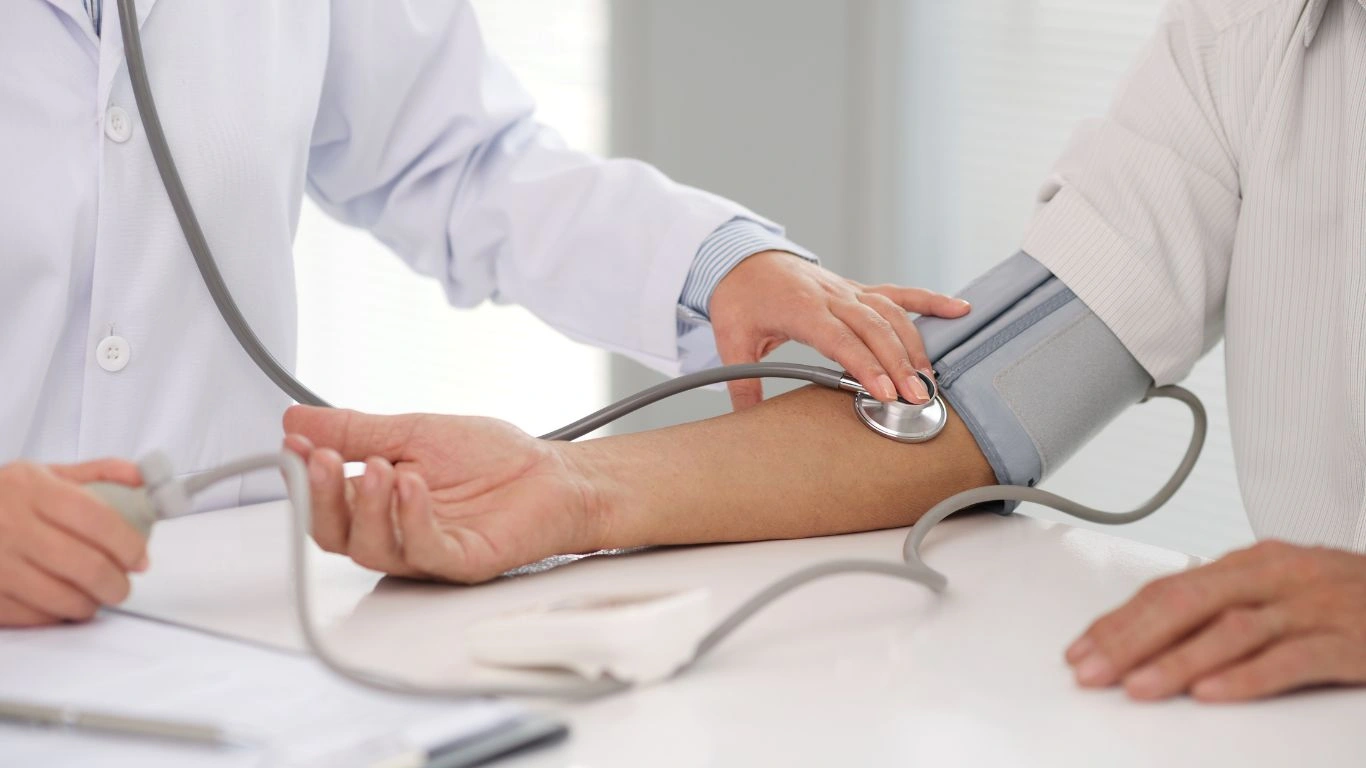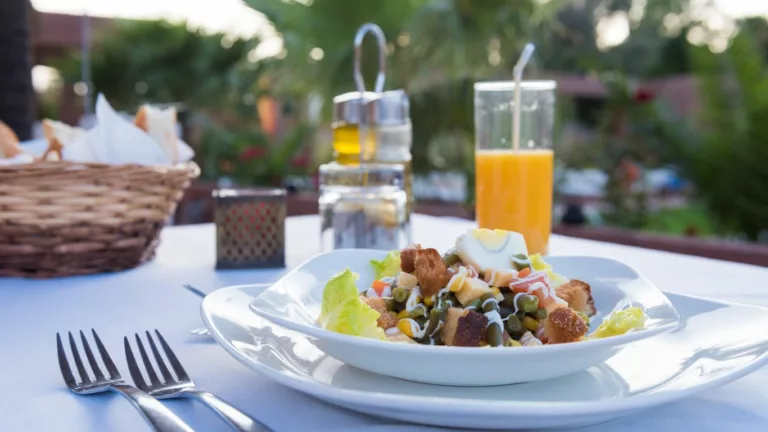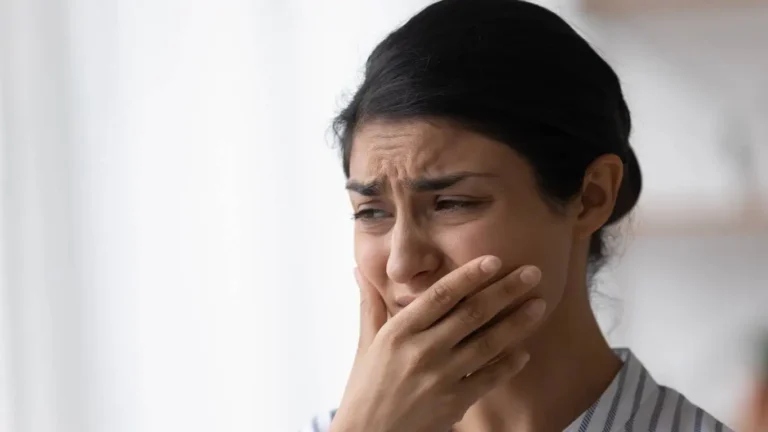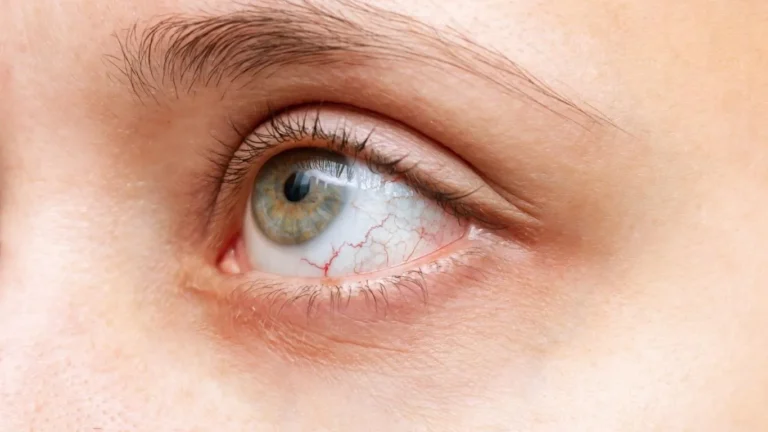The Powerful Connection Between Hydration and Blood Pressure
When it comes to managing your blood pressure, there’s one factor that often gets overlooked: hydration. Yes, it might seem simple, but staying properly hydrated can play a huge role in keeping your blood pressure in check. As a hypertension expert, I’ve seen how small lifestyle changes—like drinking enough water—can make a big difference in preventing or even managing high blood pressure. Let’s dive into the surprising yet significant connection between blood pressure and hydration and why it’s something you need to pay attention to.
The Impact of Hydration on Blood Pressure

We all know the basics: drink water, stay hydrated. But how does it actually affect blood pressure? Well, here’s the thing: when you’re dehydrated, your body doesn’t have enough fluids to function properly. This can lead to a variety of issues, including an increase in blood pressure.
Dehydration can cause your blood to become thicker, which makes it harder for your heart to pump it through your body. This puts more strain on your cardiovascular system, and over time, can contribute to a rise in your blood pressure. So, the simple act of staying hydrated can help reduce this strain, and potentially lower your risk for hypertension.
What Happens When You’re Dehydrated?
Dehydration can have a serious impact on your overall health. But when it comes to blood pressure, the effects are even more concerning. Here’s what happens:
- Blood thickens: When you don’t drink enough fluids, your blood thickens. This means your heart has to work harder to pump it through your body, leading to higher blood pressure.
- Salt imbalance: Your kidneys are responsible for regulating the balance of water and salt in your body. When you’re dehydrated, this balance gets disrupted, which can lead to higher blood pressure.
- Increased stress on the heart: When your blood volume drops, your heart has to work harder to pump blood, which increases the risk of heart strain and hypertension.
The Link Between Hydration and Sodium Levels

One of the key factors linking hydration and blood pressure is sodium, or salt. We’ve all heard that too much salt can raise blood pressure, but the truth is that sodium and water balance each other out in the body. When you’re dehydrated, your kidneys struggle to excrete excess sodium, causing it to accumulate in the blood. This, in turn, increases blood volume, leading to a rise in blood pressure.
But here’s the kicker: staying hydrated helps maintain that balance. When you drink enough water, your kidneys can effectively filter out the excess sodium, preventing it from wreaking havoc on your blood pressure.
Hydration and Blood Pressure Medication
If you’re someone who’s already taking medication for high blood pressure, you might be wondering if hydration can still have an impact. The answer is yes! Proper hydration can enhance the effectiveness of your blood pressure medication. When your body is properly hydrated, it can better absorb the medications, making them more effective in lowering your blood pressure.
As someone who has worked with patients on both sides of this equation, I can tell you that I’ve seen firsthand how staying hydrated alongside prescribed medications can lead to better results. It’s not just about taking a pill; it’s about creating a healthy lifestyle that supports the medications and helps you manage hypertension more effectively.
Signs of Dehydration to Watch For
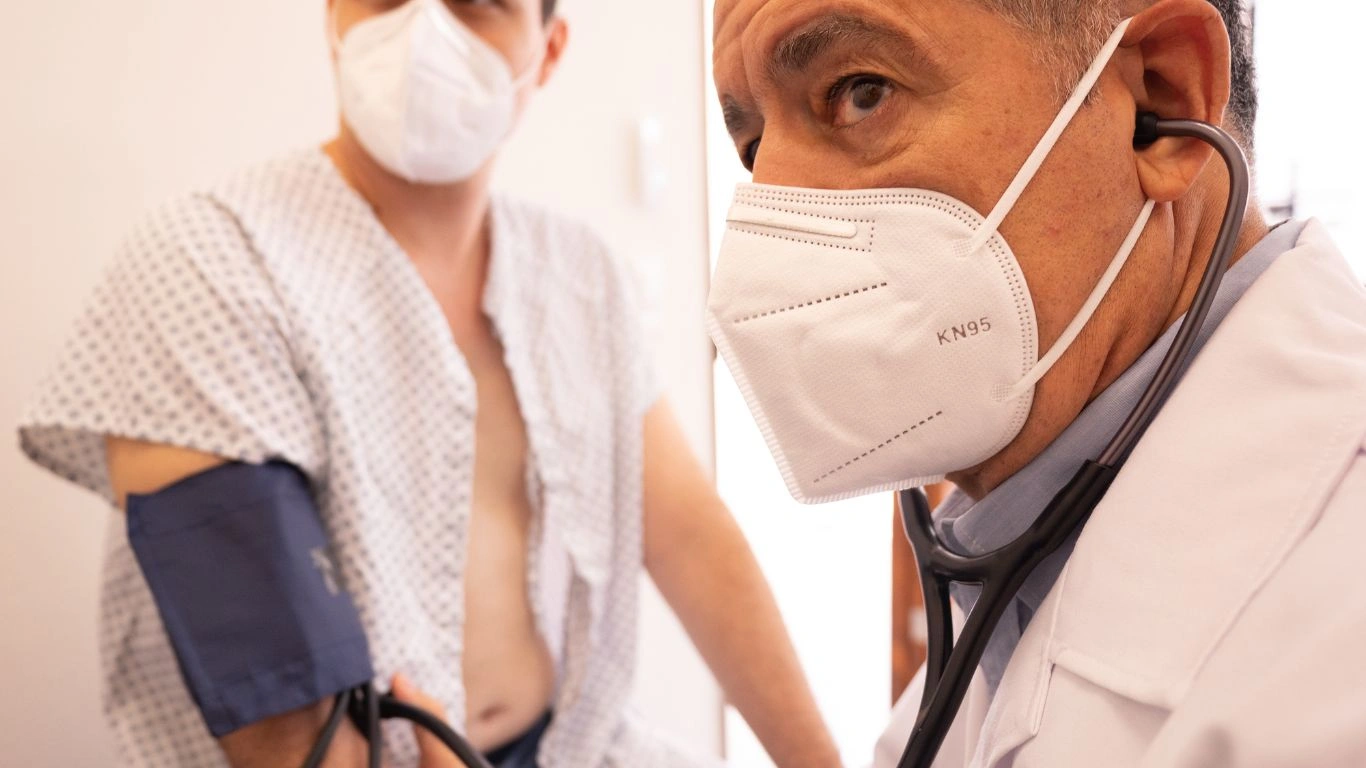
It’s easy to overlook dehydration, especially if you’re busy or distracted. But it’s important to be aware of the signs so you can address them before they start affecting your blood pressure.
Here are a few common signs of dehydration:
- Dry mouth and throat: A lack of moisture in the body can cause your mouth and throat to feel dry, making it hard to swallow.
- Fatigue and dizziness: Dehydration can cause a drop in blood pressure, leading to feelings of lightheadedness and fatigue.
- Dark-colored urine: If you notice that your urine is dark yellow or amber, this can be a sign that you’re not drinking enough fluids.
- Headaches: Dehydration often leads to headaches, which can become more severe if left unaddressed.
If you notice any of these signs, it’s important to take action quickly. Drinking water and replenishing your fluids can help bring your body back to its optimal state and protect your blood pressure.
Hydration Strategies for Maintaining Healthy Blood Pressure
Now that we understand how hydration affects blood pressure, let’s talk about practical ways to stay hydrated throughout the day. Here are some simple strategies you can incorporate into your routine:
- Start your day with water: Make it a habit to drink a glass of water first thing in the morning. This helps rehydrate your body after a night of sleep.
- Carry a water bottle: Keep a reusable water bottle with you throughout the day so you can sip water regularly.
- Infuse your water: If plain water feels boring, try infusing it with fruits like lemon or cucumber for a refreshing twist.
- Eat hydrating foods: In addition to drinking water, you can also hydrate with foods that have a high water content, like watermelon, cucumbers, and strawberries.
By making hydration a priority, you’re not only helping your blood pressure but also improving your overall health and well-being.
The Science Behind Hydration and Blood Pressure

Let’s dive a bit deeper into the science behind hydration and blood pressure. It’s not just about drinking more water—it’s about understanding how fluid balance in the body affects your heart, blood vessels, and overall circulation. When we’re properly hydrated, the fluid levels in our bloodstream are at an optimal level, making it easier for the heart to pump blood. This leads to smoother circulation and a more stable blood pressure.
On the flip side, dehydration can have the opposite effect. When we don’t drink enough water, the volume of blood decreases, and the blood becomes thicker, making it harder for the heart to push it through the blood vessels. This increases the risk of your blood pressure rising, which can lead to hypertension if not addressed. I’ve seen this happen with clients who were otherwise healthy but failed to maintain proper hydration habits.
The Role of Sodium in Hydration
Sodium plays a crucial role in how our body handles water. When we consume too much sodium, the body tends to retain more water to dilute the sodium levels, which can increase the pressure inside the blood vessels. This is why a high-salt diet is often linked to high blood pressure. But hydration can help balance this. Drinking enough water helps flush excess sodium from the body, keeping blood pressure in check.
From my experience, clients who have cut back on processed foods (which are usually high in sodium) and increased their water intake see noticeable improvements in both their blood pressure and overall health. If you’re one of those people who loves salty snacks, consider balancing it out with extra hydration to mitigate any negative effects on your blood pressure.
How Dehydration Contributes to High Blood Pressure

As I mentioned earlier, dehydration can have a serious impact on your blood pressure. Think of it this way: when you’re dehydrated, your body compensates by releasing hormones that tell your kidneys to retain water and salt. This helps conserve fluids, but it also leads to blood vessels tightening. This constriction of blood vessels is a key contributor to elevated blood pressure. So, when you’re not drinking enough water, your body is essentially working against you in maintaining a healthy blood pressure.
In my work, I’ve seen that a surprising number of people don’t realize they’re chronically dehydrated. It’s not always about feeling thirsty—by the time you’re thirsty, your body is already starting to feel the effects of dehydration. That’s why it’s important to drink water regularly, even if you don’t feel thirsty.
Hydration and Blood Volume
One of the most important factors that affects blood pressure is blood volume. Your blood volume is essentially the amount of blood circulating through your system. When you’re properly hydrated, you have an adequate volume of blood, which makes it easier for your heart to pump blood throughout your body without putting excess strain on your arteries. On the other hand, when you’re dehydrated, your blood volume decreases, causing your heart to work harder to push that thicker, more viscous blood through your veins and arteries.
In many of the cases I’ve seen, patients who focused on improving their hydration levels often experienced a noticeable reduction in their blood pressure within just a few weeks. It wasn’t a miracle, but it was a clear example of how important hydration is to maintaining healthy blood volume and, ultimately, healthy blood pressure.
Factors That Affect Hydration and Blood Pressure
Hydration isn’t the only factor that can influence blood pressure. There are several variables that come into play, from what you eat to how active you are. Let’s take a look at some of these factors and how they relate to hydration.
Dietary Choices
What you eat can play a huge role in how well you’re able to maintain healthy hydration levels and blood pressure. For example, a diet rich in fruits and vegetables provides you with more than just vitamins and minerals—it also helps your body stay hydrated. Foods like cucumbers, watermelon, and oranges have a high water content, which helps hydrate you from the inside out.
But it’s not just about what you add to your diet—it’s also about what you cut back on. If you’re eating a lot of processed foods or foods high in sodium, that’s a surefire way to throw off your hydration balance and spike your blood pressure. It’s important to focus on a well-rounded diet that supports both hydration and heart health.
Physical Activity and Hydration
Let’s not forget about the impact of physical activity on hydration. When we exercise, we lose water through sweat, so it’s essential to replenish those fluids as soon as possible. This is especially true if you’re doing intense or prolonged exercise. Dehydration during exercise can raise your blood pressure, so make sure to hydrate before, during, and after your workout to keep your blood pressure from spiking.
I always advise my clients to carry a water bottle with them during exercise, especially if they’re engaging in activities like running or cycling. Staying hydrated while working out isn’t just about preventing dehydration—it’s about giving your body the best chance to perform and recover, all while keeping your blood pressure in check.
Practical Tips for Staying Hydrated
Now that we know how hydration impacts blood pressure, let’s talk about practical ways you can improve your hydration habits. Here are a few tips I share with my clients:
- Carry a water bottle: Keep a bottle of water with you throughout the day. Having it right at your side will remind you to drink and help you stay on track.
- Drink consistently: Don’t wait until you’re thirsty to drink. Aim to sip water regularly throughout the day to stay consistently hydrated.
- Track your intake: Use apps or hydration trackers to keep an eye on how much water you’re drinking daily. It’s easy to forget to hydrate when life gets busy!
- Eat water-rich foods: Include foods with high water content in your meals. Fruits and vegetables like cucumbers, celery, and strawberries can help boost your hydration.
- Avoid sugary drinks: Stick with water or herbal teas instead of sodas or sugary beverages, which can dehydrate you and raise blood pressure over time.
By following these simple strategies, you can keep your hydration levels up and your blood pressure in check. Remember, it’s all about consistency. The more you make hydration a part of your daily routine, the more your body will thank you.
Case Studies & Real-Life Examples

While the science behind hydration and blood pressure is fascinating, it’s the real-life stories that really hit home. Over the years, I’ve had the privilege of working with many individuals who have turned their blood pressure around simply by improving their hydration habits. These case studies serve as a reminder of how small, consistent changes can make a world of difference in managing hypertension.
Example 1: Sarah’s Story – A Simple Change, Big Results
Sarah came to me about a year ago with concerns about her rising blood pressure. She was in her early 40s, active, but had recently been feeling fatigued, dizzy, and stressed. We did all the usual tests, and everything pointed toward high blood pressure. She was already on medication, but it seemed like her numbers weren’t budging.
After digging a bit deeper into her lifestyle, I discovered that Sarah wasn’t drinking nearly enough water during the day. Her hydration habits were sporadic at best, with coffee being her main source of liquid throughout the day. I suggested that she start tracking her water intake and aim for at least 8 glasses a day. Within a couple of weeks, Sarah noticed a significant difference—her energy levels were up, and her blood pressure readings had dropped. By simply staying more consistent with her hydration, Sarah was able to bring her blood pressure under control.
Example 2: Tom’s Journey – Staying Hydrated While Managing Medications
Then there’s Tom, a 58-year-old with a history of high blood pressure. Tom had been taking blood pressure medication for years, but he was frustrated by the side effects and still struggled with fluctuating blood pressure. After a thorough evaluation, I recommended he also pay closer attention to his water intake and how it might be affecting his medication absorption.
Tom was skeptical at first—he had tried every method under the sun and couldn’t see how something as simple as water could make a difference. But he agreed to give it a try. Within a month of consistently hydrating and monitoring his fluid intake, Tom’s blood pressure stabilized more than it ever had before, and he felt better overall. His energy improved, he didn’t feel as dizzy, and his medications worked more effectively. His case is proof that even long-term medication users can benefit from better hydration.
Key Takeaways: What You Need to Remember
Now that we’ve covered the ins and outs of hydration’s impact on blood pressure, let’s recap some of the most important takeaways to keep in mind:
- Hydration is essential for blood pressure regulation: When you’re hydrated, your blood volume is at a healthy level, making it easier for your heart to pump blood without excessive strain.
- Dehydration can worsen high blood pressure: Not drinking enough fluids can make your blood thicker, causing your heart to work harder and increasing your blood pressure.
- Water is your best friend: While other drinks like coffee and soda might be tempting, nothing beats the power of good old water when it comes to staying hydrated and keeping your blood pressure in check.
- Small lifestyle changes can make a big difference: It doesn’t take drastic measures to see results. Starting with a simple habit of drinking more water throughout the day can have a profound impact on your health.
- Consistency is key: Hydration isn’t a one-time fix. Staying hydrated is something you need to commit to every day for long-term benefits.
FAQs
Still have questions about hydration and blood pressure? Here are some common queries I’ve received over the years:
How much water should I drink each day?
While the “8 glasses a day” rule is a good starting point, everyone’s hydration needs are different. Factors like activity level, age, and climate can all affect how much water you need. A general guideline is to aim for around 8 cups (64 ounces) per day, but if you’re very active or live in a hot climate, you may need more. Listen to your body—it’s usually pretty good at telling you when you need to drink.
Can I hydrate with drinks other than water?
Yes, you can hydrate with other beverages like herbal teas, fruit-infused water, or even foods like watermelon or cucumbers. However, water should be your main source of hydration, as sugary drinks or caffeine can have diuretic effects that lead to dehydration if consumed in excess.
Will drinking more water lower my blood pressure immediately?
Not necessarily. While staying hydrated is important for managing blood pressure, it’s part of a larger picture that includes a balanced diet, regular exercise, stress management, and possibly medication. However, consistent hydration can certainly help improve your blood pressure over time.
Bonus: Additional Resources or DIY Tips
If you’re looking to take your hydration habits to the next level, here are a few bonus tips and resources to help you stay on track:
- Hydration apps: Apps like MyWater and WaterMinder can help you track your water intake throughout the day and set reminders to drink more water.
- Infused water recipes: Try infusing your water with fresh fruits and herbs like lemon, mint, or berries for a flavorful twist.
- Electrolyte-rich drinks: If you’ve been sweating a lot or exercising intensely, consider adding a natural electrolyte drink (like coconut water) to your routine to replenish lost minerals.
Appendix: Table, References, Disclaimer, and Call to Action
References: To dive deeper into the science behind hydration and blood pressure, check out these helpful sources:
- Healthline – Hydration and Hypertension
- CDC – Hydration and Health
- National Institutes of Health – The Role of Hydration in Hypertension
Disclaimer: This article is intended for informational purposes only and should not replace professional medical advice. Always consult with a healthcare provider before making any changes to your hydration or medication regimen.
Call to Action: Ready to take control of your blood pressure? Start by increasing your water intake today! Don’t forget to talk to your doctor about how hydration can fit into your overall health plan. Together, we can work toward a healthier you!

Dr. Gwenna Aazee is a board-certified Internal Medicine Physician with a special focus on hypertension management, chronic disease prevention, and patient education. With years of experience in both clinical practice and medical writing, she’s passionate about turning evidence-based medicine into accessible, actionable advice. Through her work at Healthusias.com, Dr. Aazee empowers readers to take charge of their health with confidence and clarity. Off the clock, she enjoys deep dives into nutrition research, long walks with her rescue pup, and simplifying medical jargon one article at a time.

